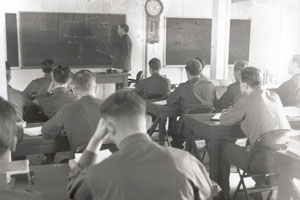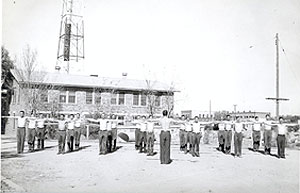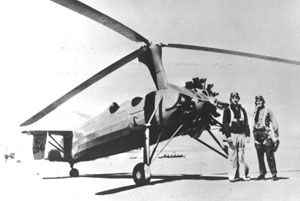 |
 Did you know that the Border Patrol’s motto “Honor First” dates to the 1930s?
(10/01/2012) The motto “Honor First” is synonymous with the Border Patrol, and its adoption in the mid 1930s coincides with a significant organizational change. The motto “Honor First” is synonymous with the Border Patrol, and its adoption in the mid 1930s coincides with a significant organizational change.  |  | click for hi-res
 | | A weekend feature during World War II describes the role of the Border Patrol in the defense of the nation. (Chicago Tribune, January 3, 1943) |
|
|  |  |
During this period, the Border Patrol was still a relatively young organization, and like the current CBP which will celebrate its tenth anniversary in March 2013, the Border Patrol was safeguarding the U.S. against ever changing challenges. From its inception in 1924 until the early 1930s, the Border Patrol concentrated on enforcing the immigration laws. But by the time that the Border Patrol entered its second decade, it was also becoming a significant part of the nation’s defenses. By this time, the federal government had awakened to the borders as potential gateways for espionage and sabotage. Understanding that new threats to the nation called for transforming the Border Patrol, its chief, Willard F. Kelly, set about to modernize the Border Patrol. From securing state-of-the-art equipment to establishing a formal training for recruits, Kelly wanted to ensure that the Border Patrol could prevent illegal border crossings,  | click for hi-res
 | | Recruits received classroom instruction and daily physical training at the Border Patrol Academy in the 1930s. |
|
|  |  |
as well as identify and thwart emerging threats to the nation. The first Border Patrol class reported for training in 1934, and by 1943, a hundred new recruits were reporting to the Border Patrol Academy every 35 days. The course was both academically and physically rigorous. Kelly noted that the “average man takes from 3 to 5 inches off his waist and gains 20 pounds in weight” by the end of the training. The Border Patrol was also receiving assets as never before. On the eve of World War II, Tom Simmons of the Dallas News proclaimed in a nationally syndicated story that “The Rio Grande border patrol has put to use inventions and instruments that most folks figure are still laboratory playthings . . . .” Chief among these was the autogiro, a precursor to the modern helicopter.  |  | click for hi-res
 | | Recruits received classroom instruction and daily physical training at the Border Patrol Academy in the 1930s. |
|
|  |  |
But Kelly saw a more important aspect of the Border Patrol that would come to be embodied in its motto – Honor First. At the core of this transformation from untrained personnel to a well-equipped corps was to instill in Border Patrol recruits and agents the moral imperative of their work. Border Patrol agents not only had to know how to do their jobs, but must also realize that the nation’s welfare increasingly depended on them to exercise their duties honestly and without consideration to personal costs. This imperative gave birth to “Honor First,” and as Kelly was quick to note, the motto was coined from within the ranks of the Border Patrol. According to Kelly, the motto was created around 1936. He recounted the story of the adoption of the memo to Ben Wilson, a reporter for Leatherneck Magazine, in 1939:  | click for hi-res
 | | Autogiros were introduced into service by the Border Patrol on the eve of World War II. Chief W.F. Kelly, who was also amateur pilot, was instrumental in securing these experimental aircrafts for Border Patrol use. |
|
|  |  |
Several years ago one of the patrol units coined the phrase HONOR FIRST. It struck the fancy of the men and has come to be the motto of the service. It is a slogan which has been given specific meaning and importance by hundreds of examples of moral as well as physical courage on the part of members of the force. The times without number that the men of this force have been called upon to face hardships, together with the roll of those killed in action, make HONOR FIRST something more than an empty sentiment. [Leatherneck, October 1939, p.55]Kelly’s preparation of the Border Patrol proved to be farsighted. As the U.S. entered World War II, the Border Patrol’s work became an essential element in the nation’s defense and was increasingly recognized for this role in the nation’s newspaper. In a Chicago Tribune article published on January 3, 1943, the headline named the Border Patrol the “Front Line of Home Defense.”  |
 |
|  |  |
 |